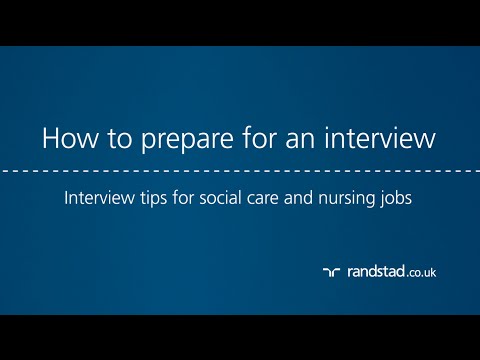Both challenging and rewarding, nursing is a profession that provides the highest levels of care for those in need. There are numerous specialisms within nursing, and one of these is mental health nursing.
Nurses who specialise in mental health care understand that the job requires additional qualities and dedicated training in order to carry out the work to the best of their ability. If you’ve recently qualified in this area, you’ll be looking for roles that allow you to put your skills into practice.
There’s currently a high demand for mental health specialists, with a shortage of around 40,000 full time nurses in this field in England. This means that those who have the skills and expertise are likely to find the perfect mental health nursing role as there are many vacancies available.
While there is a need for people with your skill set, you will still have to demonstrate your knowledge and experience to interviewers who want to get to know you. Once you’ve written your cover letter for mental health nursing and been invited along to an interview, you’ll need to know what happens next. That’s where we come in…
what to expect from your mental health nursing interview
There’s a lot of overlap between mental health nursing interviews and other types of interview. For instance, you’ll be asked a range of questions to evaluate your suitability for the role. These will be designed to test your communication skills.
This common line of questioning can be reassuring if you’re being interviewed for a mental health care job for the first time as you’ll know what to expect. However, there are also some more tailored parts of the interview process that you’ll need to be aware of. These will tell the interviewer if you’d be a good fit for the team that’s overseeing the care of those suffering from mental health problems.
To help you prepare for your mental health nursing interview, our specialist nursing recruitment team has created a list of the mental health nursing interview questions that you can expect to be asked, along with some answers for you to consider.
1. what experience do you have?
This question is designed to evaluate your suitability for the role. You’re expected to provide details of previous relevant experience working within the industry. Practical experience is now considered equally as important as educational qualifications when applying for mental health nursing jobs, so it’s important that you come prepared with a suitable answer.
How to answer: Keep your answer simple and clear. Provide a brief description of any work experience you have undertaken, highlighting the responsibilities you had in these positions. Talk about what it taught you and try to provide sufficient detail without going overboard.
2. what key tasks do you think you’ll have to do as a mental health nurse?
This is designed to test your knowledge of the industry. Employers want to hire candidates who are dedicated to working in a mental health care job, not those who are simply applying for any related position. This question is there to separate the two.
You may also be asked what the most important skill is for the job. Here, interviewers are hoping to see what skills candidates prioritise when looking for work in this field.
How to answer: Research the job you have applied for and understand the roles and responsibilities it covers. Demonstrating that you know what’s expected for the role to the interviewer will put you in a strong position. However, you may also want to mention other skills and responsibilities which are needed across all mental health positions to show your understanding of the industry as a whole.
3. how would you approach this situation?
This is part of your mental health nursing interview that introduces scenario questions. It’s the part that tests your ability to think on your feet and adapt to situations – skills that are essential when working as a mental health nurse. You’re given an example of a situation you’re likely to encounter during your work and asked to explain how you would approach it.
How to answer: Give a clear and concise answer that explains the process you would take. Go through it step by step, using your academic knowledge and on the job experience to enhance your answer.
Referencing the Mental Health Act (1983/2007) where it would naturally fit is also a good idea as it shows that you’ve been educated to the necessary level and that you can apply this knowledge to practical situations.
It would also be helpful to reference similar situations you’ve encountered in your work experience. This shows that you’ve gained positive results from this course of action.
4. what are the biggest risks that you encounter in a mental health nursing job?
This tests your knowledge of the risks that are posed not only to your patients but to you as a nurse. Mental health nursing presents varied challenges in a range of environments and this means you can never be sure what you’ll come up against.
How to answer: Show your understanding of the complexities of the job by talking about the range of situations that you might come across. Talk first about the risks to patients before covering the risks you’ll face. Focus on physical as well as psychological risks, and discuss how following safety procedures and using support systems such as counselling might help you.
Heading to an interview soon? Our care recruiters outline their top preparation tips in the clip below:
5. why do you want the job?
Rather than being a tailored mental health nursing interview question, this is a timeless question that’s put to candidates in all industries. It’s designed to test your commitment. Those who are passionate about their jobs are often the most productive employees and this question sets out to determine whether you have the necessary drive and desire to be a mental health nurse.
How to answer: Be positive and honest and state your reasons clearly. Talk about the emotional benefits of the job. Explain what you think the job will enable you to do and how it will make a difference, covering why this is important.
6. who is most at risk of developing mental health issues?
As with all health issues, some individuals are more susceptible to mental health problems than others. This question aims to test your knowledge of the different conditions you may come across in your work and how you’ll identify the patients who are most at risk.
How to answer: Use statistics to inform your answer and explain which individuals are most vulnerable to mental health issues and why. As someone applying to work in a mental health care job, it’s essential that you emphasise that anyone can suffer mental illness and that no patient should be overlooked because they’re considered low risk.
7. how would you handle complaints made against colleagues by patients?
This aims to test your knowledge of internal procedures used within healthcare settings. The exact protocol for this may be specific to the place you’re applying, so do some research beforehand.
How to answer: Talk about the challenges these complaints can pose. Explain that all complaints must be handled seriously and be directed to the appropriate member of staff to be investigated. Emphasise that patient concerns should never be ignored and then take the interviewer through the procedure that’s in place at the setting you’re applying to work.
8. what are current NHS targets regarding mental health nursing?
This tests your knowledge of current aims and ambitions within the industry. Your job will be closely connected to these, so it’s important that you show what you know and explain how you’d work to meet these targets while delivering a high level of care.
How to answer: Research current NHS targets and highlight any areas that you think are particularly important. Comment on why these targets are needed and how they can be achieved.
9. how would you improve the quality of care provided?
Employers want staff who use initiative. Nurses across all specialisms should always strive to improve the care that they offer, and this is true for mental health nursing jobs as our understanding of mental health conditions changes and evolves all the time. That means looking at new approaches towards healthcare.
How to answer: Identify areas of mental health nursing where improvements can be made and outline how to address this. You don’t need to go into too much detail but showing that you’ve given this plenty of thought will work to your advantage.
10. what is the best approach to dealing with difficult patients?
All areas of nursing involve difficult patients, but those working within the mental health discipline are exposed to this more than others. Challenging patients require specific handling and this question aims to establish whether you’re a suitable candidate for this demanding work.
How to answer: Talk through the process step by step, showing compassion and fairness in equal measure. You need to demonstrate that you’ll treat patients with care without putting yourself, your colleagues, or anyone else at risk.
prepare for your new mental health care job with Randstad
Hopefully you’re now feeling ready for your mental health nursing interview. The questions put to you may seem daunting at first but, by following our guide, you’re more likely to feel prepared and ready to answer everything they ask you.
If you want more information about nursing interviews, take a look at our hub.





